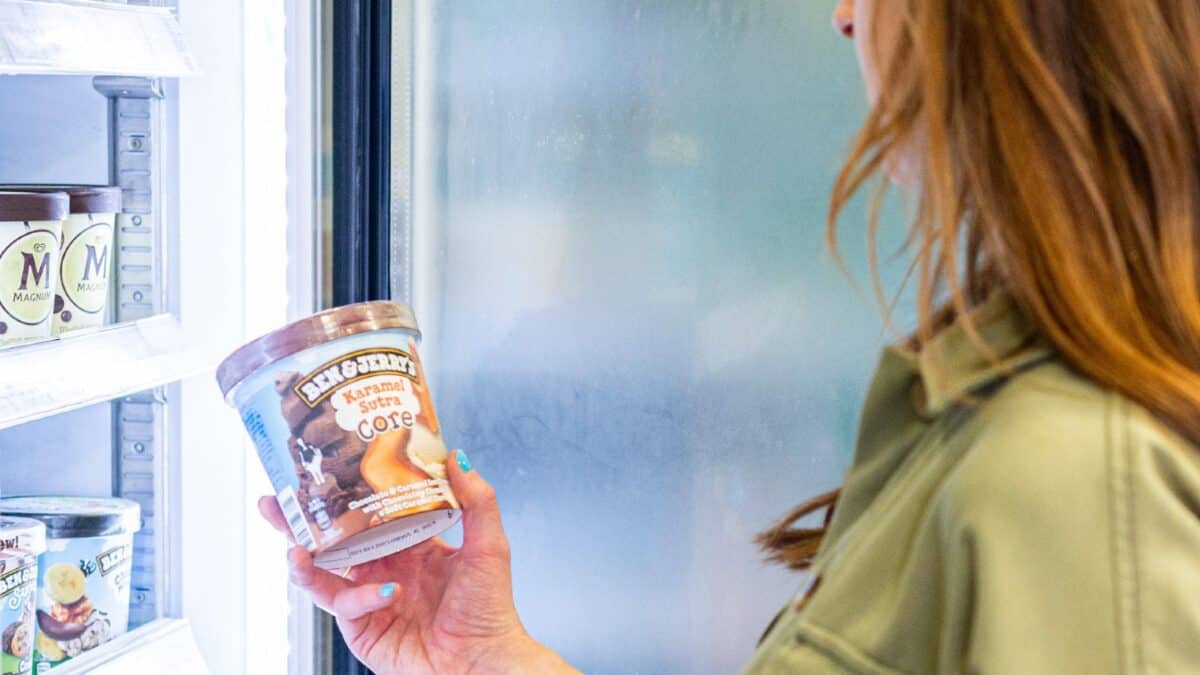The Unilever (LSE:ULVR) share price has fallen by 10% since the start of the year, putting it at a 52-week low. Right now, the stock is trading close to its February 2017 levels.
The main reason for the decline is inflation, but this has been falling in the UK, Europe, and the US recently. But while the market is still discounting Unilever shares, I think now is the time to consider buying.
Passive income
First things first – I don’t see Unilever as a stock that’s going to make investors rich. The company’s earnings per share growth over the last decade has averaged around 6.5% per year – roughly in line with the FTSE 100.
Should you invest £1,000 in ITV right now?
When investing expert Mark Rogers has a stock tip, it can pay to listen. After all, the flagship Motley Fool Share Advisor newsletter he has run for nearly a decade has provided thousands of paying members with top stock recommendations from the UK and US markets. And right now, Mark thinks there are 6 standout stocks that investors should consider buying. Want to see if ITV made the list?
The business isn’t known for explosive growth and I don’t think anyone should expect that going forward. But it’s known for a steadily growing dividend, which looks attractive to me after the latest share price declines.
Right now, the stock has a dividend yield of close to 4%. And with management targeting sales growth of between 3% and 5% a year along with expanding margins, I think there could be good returns at today’s prices.
If the firm achieves its most pessimistic growth estimates, the average annual yield will be 4.5% over 10 years and 5.2% after 20 years. With bonds offering 4.2% and 4.6%, respectively, the stock looks much more promising.
Inflation
Rising costs have been forcing the company to raise its prices. The trouble is that – even with brands as strong as Unilever’s – there are limits to how far this can go before customers start switching to cheaper alternatives.
The latest trading update bore this out – revenues grew by 5.2%, as a 5.8% increase in price caused a 0.6% decline in volumes when consumers opted for cheaper alternatives in the cost of living crisis. The stock fell 3% as a result.
But I think it’s important to remember that inflationary pressure seems to be easing. In the UK, Europe and the US, central banks are making progress towards bringing the rate of inflation under control.
If this can continue, then the major headwind Unilever has been facing might soon be about to subside. And if that happens, a price-to-earnings (P/E) ratio of 13 looks to me like a good opportunity to buy the stock.
A buying opportunity?
There’s a risk that the drop in inflation might be temporary. With the conflict between Russia and Ukraine ongoing and relations between China and the US tense, it’s not like there’s a shortage of inflationary factors.
In my view, the potential reward is worth the risk. By buying the stock at a 52-week low, investors have a chance to buy shares in a business with a strong record of dividend growth and get a 4.9% yield straight away.
On top of that, I think the new CEO’s strategy to boost growth is a good one. The plan is to invest in the firm’s existing brands, rather than attempting to generate growth through acquisitions.
This reduces the risk of overpaying for a business, as the company arguably attempted to do with Haleon. But with a new strategy, I’m looking at this as an opportunity to buy more Unilever shares for my portfolio.








